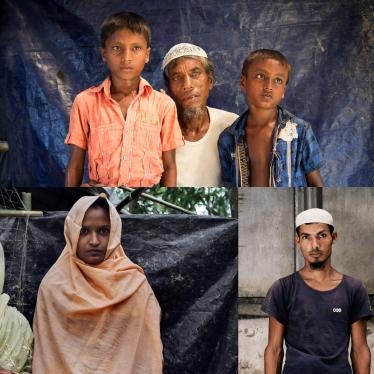(New York) - Human Rights Watch today called for stepped-up efforts to bring to justice those responsible for the killing, mass destruction, and forced expulsions that wracked East Timor last September.
In a report issued yesterday, the United Nations Commission of Inquiry on East Timor concluded that ultimate responsibility for the terror rests with the Indonesian army, which facilitated and in certain cases directly participated in the abuses. The report also urged the creation of an international investigatory body and for steps to be put in motion for establishment of an international tribunal to bring those responsible to justice.
"Justice for East Timor is at a crossroads," said Joe Saunders, deputy Asia director at Human Rights Watch. "The U.N. commission's findings should put to rest the Indonesian army's self-serving claims that the systematic destruction of East Timor was the work of crazed militias and a handful of disobedient soldiers. The Commission's findings make it imperative that investigations continue until all those responsible can be brought to justice."
Indonesia's own national commission of inquiry on East Timor also issued its report yesterday. It called for establishment of a special "human rights court" in Indonesia and named more than thirty Indonesian officers believed responsible for the terror in East Timor, including General Wiranto and five other Indonesian generals.
Saunders noted that the Indonesian investigators, working under tremendous pressure and at considerable personal risk, did a remarkable job. He emphasized, however, that it is too early to say whether any Indonesian tribunal will have sufficient resources or authority to conduct what will undoubtedly be expensive, drawn-out trials of military leaders. It will be difficult to ensure that such prosecutions stay free of pressures from the military, currently engaged in a struggle with the new civilian government of Abdurrahman Wahid to retain its old political power.
"International investigations must continue if there is to be any hope of serious pursuit of justice on the Indonesian side," Saunders said. "And if for any reason Indonesia proves unable or unwilling to pursue justice, the international community must step in." He noted that it takes time, resources, and skilled investigators to build the kind of cases necessary to win convictions and urged that the U.N. Security Council ensure that additional resources are pledged to support a vigorous international investigation.
Human Rights Watch also welcomed President Wahid's call for prosecutions of army leaders. President Wahid, speaking on Monday at the World Economic Forum in Davos, Switzerland, reportedly said that he will soon ask Wiranto, Indonesian military chief at the time of the East Timor carnage, to resign his current post as Coordinating Minister for Politics and Security Affairs. The president reportedly also said that he would pardon Wiranto, but only after a trial, and that no other military officers would be pardoned. The president has publicly rejected an international tribunal, preferring trials of military officials before a special Indonesian court.
"We welcome President Wahid's call for accountability and trials of army leaders," said Saunders. "The principle of accountability must be upheld, whether it is an Indonesian court or an international tribunal that ultimately hears the cases." He emphasized, however, that any decision to pardon Wiranto would be premature and must under no circumstances serve as an opening to broader impunity for the armed forces.
How the trials of the generals are handled will have important implications not only for justice in East Timor but also for the process of reform in Indonesia. Much of the regional and sectarian conflict in Indonesia today has been fueled by public frustration with lack of accountability for past injustices and a resultant loss of faith in the ability of government institutions to broker fair resolutions of disputes. Hard-line military officers disgruntled with the new civilian leadership are also rumored to be directly behind some of the violence.
"Impunity for the armed forces must end," said Saunders. "Establishing accountability for the abuses in East Timor is a necessary beginning." He noted that with international tribunals underway for Rwanda and the former Yugoslavia, and another tribunal under discussion for the Khmer Rouge in Cambodia, the progress of justice in the case of East Timor would have broad repercussions internationally.






